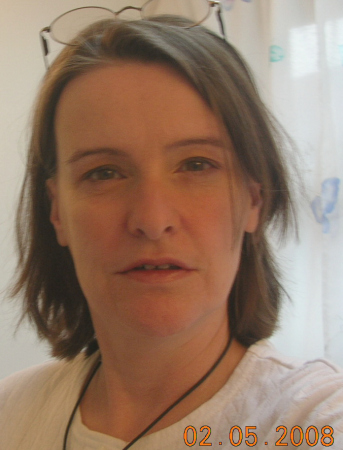Tracy C Shields
age ~52
from Bethesda, MD
- Also known as:
-
- Tracy Charlene Shields
- Tracy Charlene Sheilds
Tracy Shields Phones & Addresses
- Bethesda, MD
- 1020 Pullen Rd, Sevierville, TN 37862 • (865)4539719
- 1024 Pullen Rd, Sevierville, TN 37862 • (865)4539719
- 1411 Colonial Ave APT B2, Norfolk, VA 23517
- 3110 End Ave, Nashville, TN 37203 • (615)2799286 • (615)4632384
- Rye, NY
- Knoxville, TN
- Jefferson City, TN
- 3211 Overlook Dr, Nashville, TN 37212
Resumes

Program Development Professional
view sourceLocation:
Washington D.C. Metro Area
Industry:
Program Development

Tracy Shields
view sourceLocation:
United States

Tracy Shields
view sourceLocation:
United States

Tracy Shields Silver Spring, MD
view sourceWork:
Campbell Creative Services
Beltsville, MD
Nov 2010 to Jun 2013
FINANCIAL ANALYST Rhonda Bedell
Beltsville, MD
Mar 2008 to Aug 2009
MEDICAL BILLER Alco Products, Inc
Lanham, MD
Apr 2004 to Jun 2008
CONTRACT/ SALES CONSULTANT Grant Thornton, LLP
Alexandria, VA
Mar 2002 to May 2004
FINANCIAL ANALYST/ MODEL MANAGER Booz Allen & Hamilton
McLean, VA
Jan 2000 to Feb 2002
FINANCIAL ANALYST
Beltsville, MD
Nov 2010 to Jun 2013
FINANCIAL ANALYST Rhonda Bedell
Beltsville, MD
Mar 2008 to Aug 2009
MEDICAL BILLER Alco Products, Inc
Lanham, MD
Apr 2004 to Jun 2008
CONTRACT/ SALES CONSULTANT Grant Thornton, LLP
Alexandria, VA
Mar 2002 to May 2004
FINANCIAL ANALYST/ MODEL MANAGER Booz Allen & Hamilton
McLean, VA
Jan 2000 to Feb 2002
FINANCIAL ANALYST
Education:
University of MD University College
Adelphi, MD
2012
MBA University of MD University College
Adelphi, MD
2011
Master's University of MD
Adelphi, MD
1998
Bachelor of Arts in Sociology
Adelphi, MD
2012
MBA University of MD University College
Adelphi, MD
2011
Master's University of MD
Adelphi, MD
1998
Bachelor of Arts in Sociology

Tracy Shields Nashville, TN
view sourceWork:
Vanderbilt University Medical Center
Sep 2009 to 2000
Clinical Librarian / Knowledge Management Information Specialist Vanderbilt University Medical Center
Nashville, TN
Sep 2007 to Sep 2009
Library Intern and Fellow The Medical Letter
New Rochelle, NY
May 2005 to Aug 2007
Assistant Editor freelance / self-employeed
Knoxville, TN
Jul 2003 to May 2005
Copyeditor Department of Pharmacology
Nashville, TN
May 2001 to Jul 2003
Research Assistant Department of Pharmacology
Nashville, TN
Mar 2000 to May 2001
Editorial Assistant Melissa Langley, MD (Dermatology)
Nashville, TN
1996 to 2000
Medical Assistant / Personal Assistant
Sep 2009 to 2000
Clinical Librarian / Knowledge Management Information Specialist Vanderbilt University Medical Center
Nashville, TN
Sep 2007 to Sep 2009
Library Intern and Fellow The Medical Letter
New Rochelle, NY
May 2005 to Aug 2007
Assistant Editor freelance / self-employeed
Knoxville, TN
Jul 2003 to May 2005
Copyeditor Department of Pharmacology
Nashville, TN
May 2001 to Jul 2003
Research Assistant Department of Pharmacology
Nashville, TN
Mar 2000 to May 2001
Editorial Assistant Melissa Langley, MD (Dermatology)
Nashville, TN
1996 to 2000
Medical Assistant / Personal Assistant
Education:
University of Tennessee
Knoxville, TN
May 2005
Master of Science in Information Sciences Vanderbilt University
Nashville, TN
Dec 1995
Bachelor of Science in Biology
Knoxville, TN
May 2005
Master of Science in Information Sciences Vanderbilt University
Nashville, TN
Dec 1995
Bachelor of Science in Biology
Skills:
SELECTED SKILLS AND COMPETENCIES Writing and editing: Author and co-author scholarly articles, abstracts, and presentations; write filtered evidence-based summaries of the biomedical literature in support of complex clinical questions by physicians and researchers; edit (utilizing developmental, substantive, and copyediting skills) articles and other publications according to various standards (APA, AMA, house-specific styles); index publications for both print and web; fact check and verify sources for articles; research, write, and edit patient education handouts, instructional handouts, and organization's communication newsletter; ability to write for audience of varying technical expertise; familiarity with literacy concepts and tools; strong eye for detail with perfectionist tendencies. Knowledge management: Develop and curate knowledge repositories; familiarity with content management systems (e.g., Drupal, WordPress); use wide range of tools to identify, analyze, and distribute knowledge for the enhancement of organizational productivity. Project management and leadership: Effectively plan and manage multiple, concurrent projects; act as a liaison among different communities with a variety of backgrounds; ability to prioritize; mentor and train colleagues in selected expert skill areas. Information organization and retrieval: Identify content sources; conduct expert-level searches in biomedical, clinical, generalized databases as well as online and web-based resources; expert-level searching of grey literature resources such as government publications and other web-based documents; develop and maintain complex controlled vocabulary and ontology for knowledge management projects; identify, categorize, maintain, and provide quality control for new and existing digital library records. Training and presentation: Train individuals and groups with different backgrounds and skill levels in searching, library databases, and other information systems; effectively present and communicate to persons with varying expertise; serve as primary staff trainer for searching module; plan, coordinate, and present monthly staff training continuing education seminars. Technology: Integrate technology into knowledge management and course instruction; formally trained in information technology and information systems. Expert-level abilities in searching: Internet resources; grey literature; PubMed/MEDLINE; CINAHL; EMBASE; ISI Web of Knowledge; NLM and NCBI databases (clinicaltrials.gov, OMIM, NLM Gateway, TOXNET, GenBank, etc.). Knowledge of various software programs, including: Microsoft Office Suite; Adobe Photoshop and InDesign; Cindex; EndNote; various social media applications. Ability to use a wide range of PC and OSX based programs. Programming skills include HTML, CSS, XML, and web-based standards. Research: Conduct experiments to determine the structure of the human A(1) adenosine receptor; course work in biostatistics and research design. Other: Extensive experience in providing exceptional customer service in a variety of settings.

Tracy Shields
view sourceLocation:
United States

Domestic Engineer
view sourceLocation:
Washington D.C. Metro Area
Industry:
Hospitality
Work:
QuadraMed Jul 1998 - Jul 2007
HR Generalist
HR Generalist
Myspace
Googleplus

Tracy Shields
Lived:
Nashville, TN
Work:
Vanderbilt University Medical Center - Medical Librarian

Tracy Shields
About:
TRACY SHIELDS OWNER AND PRODUCER OF THE TRACY SHIELDS SHOW

Tracy Shields

Tracy Shields

Tracy Shields

Tracy Shields

Tracy Shields

Tracy Shields
Plaxo

Tracy Julias Shields
view source
Tracy J Shields
view source
Tracy Shields
view sourceMuscogee County School District
Flickr
Youtube
Classmates

Tracy McPherson (Shields)
view sourceSchools:
Fairmount Public School Scarborough Morocco 1967-1973
Community:
Steven Cobbe, Carmen Petrie
Biography:
After high school I repaired typewriters for 6 years until the writing on the wall s...

Tracy Miller (Shields)
view sourceSchools:
Howe High School Howe TX 1979-1989
Community:
Joy Melton, Thomas Brown, Bill Robinson

Tracy Julias Shields (Jul...
view sourceSchools:
Carlisle High School Carlisle PA 1984-1988
Community:
Gigi Gattis

Tracy Shields
view sourceSchools:
Carson High School Carson CA 1981-1985
Community:
Terry Wheeler, Brandye Olson, James Cast

Tracy Shields (Raynor)
view sourceSchools:
Lake Worth High School Lake Worth FL 1980-1984
Community:
Diane Humphrey

Tracy Jones (Shields)
view sourceSchools:
Randolph K-12 School Huntsville AL 1990-1994
Community:
Rocky Medina, Kevin Ball, George Smythe

Tracy Shields (Bienias)
view sourceSchools:
Oak Forest High School Oak Forest IL 1976-1980
Community:
Rick Smielewski, Thomas Boreman, Vickie Gifford, James Moriarty, Kathy Egan, Doug Folgers, Glen Berlin, Linda Rocco, Theresa Ritchey, Cheryl Oddo, Sheri Blaseck, Sherri Kirby

Tracy Williams (Shields)
view sourceSchools:
W. H. Morden School Oakville Morocco 1980-1982
Community:
Debbie Piros, Marilyn Wright, Pat Sumak

Tracy Shields Jes
view source
Tracy Taylor Shields
view source
Tracy Shields Dermody
view source
Tracy L. Shields
view source
Tracy Shields Coyle
view source
Tracy Shields Williams
view source
Tracy Shields
view source
Tracy Shields Weatherbee
view sourceGet Report for Tracy C Shields from Bethesda, MD, age ~52













